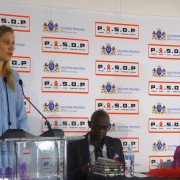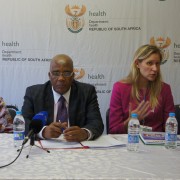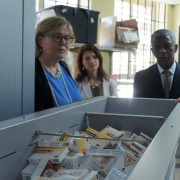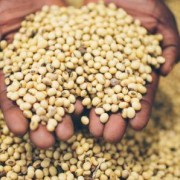
Innovation is a hallmark of U.S. assistance in the health sector and this is an innovative and vibrant approach to increase HIV testing and support the 90-90-90 strategy. I am confident that our partnerships can help generate further innovations to benefit our health objectives. I’m proud that USAID through PEPFAR, has been a strong partner with South Africa in the fight against HIV and we will continue to partner because, despite great success, there is still much to do. Once again I applaud the South African Government for their commitment to the fight against HIV.

I’ll begin by thanking Minister Aaron Motsoaledi and his team at the Department of Health for inviting me to give a message of support on behalf of USAID and the U.S. President’s Emergency Plan for AIDS Relief; better known to most of you as PEPFAR. It is an honor for me to join you today to mark World Prematurity Day. Maternal and child health is a significant focus of the U.S. government throughout Southern Africa. USAID works closely with many South African partners on maternal and child HIV prevention and care and treatment programs, with a strong emphasis on reducing mother to child transmission, and safeguarding orphans and vulnerable children.

USAID has awarded a five-year, $37.6 million project to work in partnership with the Government of South Africa to improve the public health supply chain. This will improve the availability of medicines, while reducing wait times and stock-outs; making sure medicines are available in the right place at the right time.
Through $4.1 million in FY 2014–16 funding from USAID’s Office of U.S. Foreign Disaster Assistance (USAID/OFDA), the UN Food and Agriculture Organization (FAO) is protecting livelihoods and building resilience in drought-prone communities of southern Angola and northern Namibia.

The U.S. Agency for International Development announced $127 million in additional humanitarian and recovery assistance to people affected by severe drought in Malawi, Zimbabwe, Mozambique, Madagascar, Lesotho, and Swaziland. With this announcement, the United States has provided nearly $300 million in humanitarian assistance to the region. In addition, the United States has also provided development investments to mitigate the drought's impacts and build resilience in Southern Africa.







Comment
Make a general inquiry or suggest an improvement.